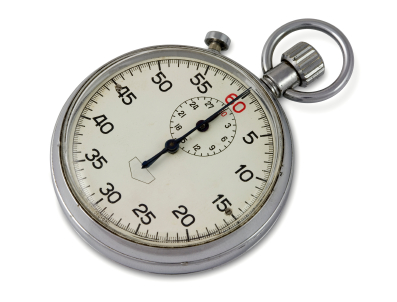Mike Wallace, the groundbreaking TV newsman who died Saturday at 93, worked hard at earning his tough-guy image. During some of the most volatile events of our times, he asked pointed questions of powerful people: members of the Nixon administration, cigarette manufacturers, the Ayatollah Khomeini, Louis Farrakhan, champions of the Vietnam War. He tossed aside his nervy image, though, to highlight a problem that many men have difficulty admitting: depression. This revelation by a highly visible tough guy has encouraged untold numbers to seek help.
Wallace spoke publicly about his depression for the first time during a "60 Minutes" retrospective of his career in 2006. He told the camera that he had tried to commit suicide.
Before Wallace went public, his doctor advised him against owning up to the illness. "'That's bad for your image,'" Wallace quoted his doctor as saying, in an interview with the Saturday Evening Post. "But finally, I had to face up to it."
Although it's more common for women to suffer from depression, men with this affliction more often end their lives, according to research published in the journal "Suicide" in 2008. Because families and the press are reluctant to make suicides public, it's not widely known that suicides are far more common in the United States than homicides - an estimated 30,000 to 35,000 each year.
The majority of men who kill themselves have not asked for help before their deaths, according to Ciaran Mulholland, a psychiatrist and international expert from Queens University in Belfast, Northern Ireland, whose findings hold for men all over the world. The reasons are poorly understood. Perhaps men are less likely to recognize that they are under stress or unhappy, Mulholland says, and more reluctant to consult their doctor about their distress.
Exacerbating the problem, health professionals are often less likely to consider a diagnosis of mental illness in men, Mulholland adds. This is true also for seniors, and especially African-American seniors, according to Charles Reynolds, a professor of psychiatry, neurology and neuroscience at the University of Pittsburgh School of Medicine.
Depression is hard to admit to. Even with everything we've learned about mental illness, it's often viewed as a moral or personal failing rather than as a medical problem. There's no blood test to show that someone is depressed, just a list of grim symptoms. Similarly, there's no clear understanding of what causes depression, just its risk factors: unemployment, social isolation, chronic illness.
Wallace was in his mid-60s when he plunged into a depression that put him in the hospital. He had been fighting a courtroom battle for his journalistic credibility, after being sued by Gen. William C. Westmoreland, who commanded the U.S. military in Vietnam from 1964 to 1968. Westmoreland alleged that he had been libeled by the Wallace documentary "The Uncounted Enemy: A Vietnam Deception," which claimed that U.S. leaders had deliberately underestimated enemy troop strength to prop up domestic support for the war. Westmoreland eventually dropped the suit.
In the midst of the trial, Wallace remembered, "I couldn't sleep, couldn't think straight, was losing weight, and my self-esteem was disappearing."
When Wallace spoke publicly about his depression, his message was that it is treatable - so much so that, at 88, he said the decades since he had begun taking antidepressants had been the best of his life. He lobbied for better health insurance coverage for mental illness.
When he embraced his depression, Wallace was motivated by a cause larger than himself. Just as he was in his journalism. This was one tough guy who could inspire us at our weakest.
Essay first published in Newsday.
